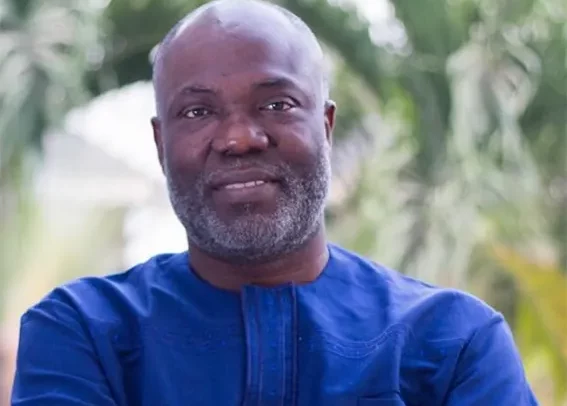George Kwame Amoako
The Minority in Parliament has called on the government to immediately withdraw the newly imposed eight percent levy on petroleum products, describing it as a betrayal of public trust and a direct assault on the livelihoods of ordinary Ghanaians.
Addressing the media in Parliament yesterday, the Minority, led by the Ranking Member on the Mines and Energy Committee, George Kwame Amoako, criticised what they called the government’s hypocrisy, accusing it of imposing a tax it had previously promised it would never introduce.
According to the Minority, the levy, which is widely referred to as the “Dumsor Levy”, was rushed through Parliament under questionable circumstances.
Mr. Amoako said the government sneaked the bill into Parliament without prior notice, avoiding public scrutiny and consultation.
He described the passage of the levy as a clandestine act designed to escape debate and public opposition, lamenting that a government which campaigned on protecting the interests of Ghanaians now chooses to pass critical tax laws under the cover of night.
The Minority questioned the government’s conflicting justifications for the levy. They asserted that while President John Dramani Mahama reportedly said the funds would be used to pay down energy sector arrears, the Energy Minister, John Jinapor, recently suggested that the levy was intended to raise funds to procure liquid fuels.
Mr. Amoako argued that these shifting explanations expose the government’s dishonesty and lack of clear planning. He further questioned the feasibility of paying off an estimated US$3.1 billion energy sector debt with the GH¢9 billion the levy is expected to generate by December 2026.
Criticising the rate of the levy, Mr. Amoako said the eight percent charge per litre of fuel represents one of the highest tax rates imposed in a single policy move in Ghana’s history.
He argued that this would heavily burden consumers, particularly the poor, who will face higher transportation and commodity costs as the levy cascades through the economy.
The Minority described the tax as a stab in the back of Ghanaians, especially when compared to the now-repealed Electronic Transactions Levy (E-Levy), which they said was less harsh, more transparent, and exempted the poor.
The caucus accused the government of acting in bad faith by imposing this levy without offering genuine alternatives or pursuing strategies that could ease the country’s energy debt without imposing additional hardship on the public.
They insisted that the government should rather focus on renegotiating energy contracts, improving operational efficiency in the power sector, and investing in renewable energy as a long-term solution to the country’s energy challenges.
Despite the government’s clear determination to press ahead with the levy, the Minority said it will not relent in its fight.
They pledged to continue mobilising public opposition, working with civil society groups, transport unions, and other affected stakeholders to demand the levy’s immediate withdrawal.
Mr. Amoako stressed that the Minority would stand firm with ordinary Ghanaians, urging the government to adopt more pragmatic and less painful alternatives to resolving the energy sector’s financial difficulties.
The Minority reaffirmed its commitment to sustained public engagement until the government reverses what they described as an unjust and damaging policy.
By Ernest Kofi Adu, Parliament House


